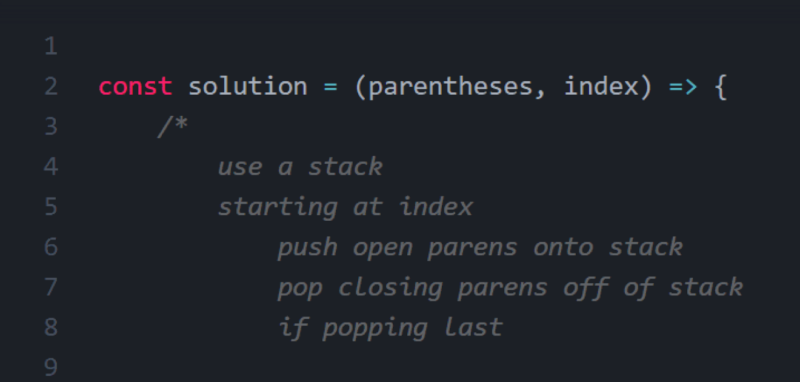Tech skill
C++ Skills
All about C++
C++ is an object-oriented language derived from C, and invented by Bjarne Stroustrup, while working at AT&T’s Bell Labs. It is widely used for systems-level programming, and building applications on Windows and various Unix operating systems (Linux, *BSD, etc).
It supports many interesting features, such as multiple inheritance (although usage of this is widely discouraged), generics, and sophisticated information-hiding constructs such as “friend classes”. Notably, the generics features are Turing-complete and can be used for a form of metaprogramming in which complex calculations are performed at compile-time instead of runtime.
It is a common practice for organizations to define a coding standard in which many of the features of C++ are strictly forbidden in an attempt to ensure that code produced is comprehensible and predictable. Prominent implementations of C++ include Microsoft’s Visual C++, the GNU Compiler Suite (GCC), and LLVM’s Clang compiler.
What’s the difference between C++ and C#?C++ is a low-level language offering manual memory management and high performance, ideal for system programming and game development. On the other hand, C# is a high-level language with automatic memory management and strong platform integration, making it well-suited for rapid application development and enterprise software solutions.
While C++ provides greater control and platform independence, C# prioritizes developer productivity and ease of use. Ultimately, the choice between C++ and C# depends on project requirements, performance needs, and developer preferences.
What to use C++ forC++ development offers a multitude of opportunities for building software applications across diverse domains. Here are some key applications of C++ development:
- System Programming: C++ is widely used for system programming tasks like operating system development, device drivers, and system utilities. Its low-level features and close-to-the-hardware capabilities make it well-suited for building software that interacts directly with hardware components and system resources.
- Game Development: C++ is a popular choice for game development due to its performance and control over system resources. Game engines like Unreal Engine and Unity use C++ as their primary programming language, enabling developers to create high-performance and visually stunning games for a variety of platforms.
- Embedded Systems: C++ is commonly used for developing software for embedded systems, such as microcontrollers, IoT devices, and real-time systems. Its efficiency and control over hardware resources make it ideal for building software that operates in resource-constrained environments with strict timing requirements.
- Scientific Computing: C++ is often used in scientific computing applications, such as computational simulations, numerical analysis, and data processing. Its performance and ability to manipulate low-level data structures make it well-suited for building software that handles large datasets and complex mathematical computations.
- High-Performance Applications: C++ is preferred for building high-performance applications that require maximum efficiency and speed, such as financial trading systems, database management systems, and multimedia processing software. Its ability to optimize code for performance-critical sections makes it a popular choice for building software where speed is paramount.
Here’s what it means to be a C++ developer:
- Proficiency in C++ Language: A C++ developer is fluent in the C++ programming language, including its syntax, semantics, and standard library. They are familiar with C++ features like classes, templates, inheritance, polymorphism, and memory management, and know how to leverage them to write clean, modular, and maintainable code.
- Algorithmic Problem-Solving: A C++ developer has strong problem-solving skills and is adept at understanding and implementing complex algorithms and data structures. They can analyze problem requirements, design efficient algorithms, and implement them in C++ code, ensuring correctness, efficiency, and scalability.
- Debugging and Optimization: A C++ developer is skilled in debugging and optimizing C++ code for performance and efficiency. They know how to use debugging tools like gdb and Visual Studio Debugger to identify and fix bugs and issues, and how to use profiling tools like Valgrind and Intel VTune to analyze code performance and identify bottlenecks.
- Platform and Library Knowledge: A C++ developer has knowledge of various platforms, compilers, and libraries commonly used in C++ development. They are familiar with platforms like Windows, Linux, and macOS, compilers like GCC and Clang, and libraries like Boost, STL (Standard Template Library), and Qt, and know how to use them to build cross-platform and scalable applications.
- Collaboration and Communication: A C++ developer is a team player who can collaborate effectively with other developers, designers, and stakeholders. They can communicate technical concepts and ideas clearly and concisely, participate in code reviews and discussions, and work together to solve complex problems and deliver high-quality software solutions.
As we look ahead to 2024, the demand for C++ developers continues to grow, and new skills and capabilities are required to stay ahead of the curve. Here are some of the most important skills for C++ developers in 2024:
- Modern C++ Features: C++ developers need skills in modern C++ features and standards for writing clean, efficient, and maintainable code. They should be familiar with features introduced in C++11, C++14, C++17, and C++20, such as smart pointers, lambda expressions, constexpr functions, and ranges, and know how to use them to improve code readability, safety, and performance.
- Concurrency and Parallelism: C++ developers should have skills in concurrency and parallelism for writing scalable and efficient multi-threaded applications. They should understand C++’s threading model, mutexes, condition variables, and atomic operations, and know how to use libraries like std::thread, std::mutex, and std::atomic to synchronize and coordinate concurrent access to shared resources.
- Graphics and Game Development: C++ developers need skills in graphics programming and game development for building high-performance and visually stunning games and multimedia applications. They should be familiar with graphics APIs like OpenGL and DirectX, game engines like Unreal Engine and Unity, and know how to use them to create immersive gaming experiences with advanced graphics, physics, and AI.
- Embedded Systems and IoT: C++ developers should have skills in embedded systems and IoT development for building software for resource-constrained devices and real-time systems. They should understand embedded programming concepts like bare-metal programming, memory-mapped I/O, and real-time operating systems, and know how to use C++ to develop firmware and drivers for embedded devices and IoT sensors.
- Machine Learning and AI Integration: C++ developers need skills in machine learning and AI integration for building intelligent applications that leverage predictive analytics and data-driven insights. They should understand C++’s role in machine learning workflows, and know how to use libraries like TensorFlow, PyTorch, and OpenCV to implement machine learning models and algorithms in C++ code.
C++ resources
Check out our resources to continue sharpening your C++ skills.
Hired profiles help developers showcase their top tech skills
After passing Hired skills assessments, candidates have the chance to showcase their skills to employers. They can opt to present an ‘Assessments’ badge on their profile. Candidates may take various assessments including Programming Skills, Full Stack, Backend, Frontend, iOS, Android, Debugging, Dev Ops Generalist, and Dev Ops AWS.
Find C++ jobs on Hired.
Hiring C++ developers can bring numerous benefits to your organization:
- Performance and Efficiency: C++ developers enable you to build software applications that achieve maximum performance and efficiency, thanks to C++’s low-level features, direct memory access, and ability to optimize code for speed and resource usage.
- Platform Independence: C++ developers enable you to develop cross-platform applications that run on multiple platforms and architectures, including Windows, Linux, macOS, iOS, Android, and embedded systems, leveraging C++’s portability and compatibility with different compilers and platforms.
- Domain Expertise: C++ developers bring domain expertise and industry knowledge to your team, enabling you to tackle complex challenges and develop solutions for diverse domains like gaming, finance, aerospace, automotive, and telecommunications, where C++ is the language of choice for building high-performance and mission-critical software applications.
- Scalability and Flexibility: C++ developers enable you to build scalable and flexible software architectures that can evolve and adapt to changing requirements and technologies, thanks to C++’s support for modular design, object-oriented programming, and template metaprogramming, allowing you to build software that scales with your business and user needs.
Looking for candidates skilled in C++? Technical assessments are a multi-pronged solution. They allow you to streamline the hiring process and reduce bias with tech skill-focused benchmarks.
Hired Assessments offer a library of hundreds of questions and customizable coding challenge campaigns tailored to technical preferences. Centralize and standardize your evaluation process as you surface top talent with specific, hard-to-find skills.
See how Mastercard and Axon used Hired Assessments to vet top candidates.
Resources you’ll love

How to Use Coding Challenge Events to Build Tech Talent Pipeline
About this eBook Today’s recruiting and hiring teams face multiple challenges, from low brand...

Need A Technical Assessments Do-Over? How To Assess Tech Skills
Technical interview alternatives for better skill-based hiring outcomes In today’s...

8 Ways to Hire Faster & Build a Better Employer Brand
What You’ll Learn How to fill positions more efficiently through tools, templates, and...
